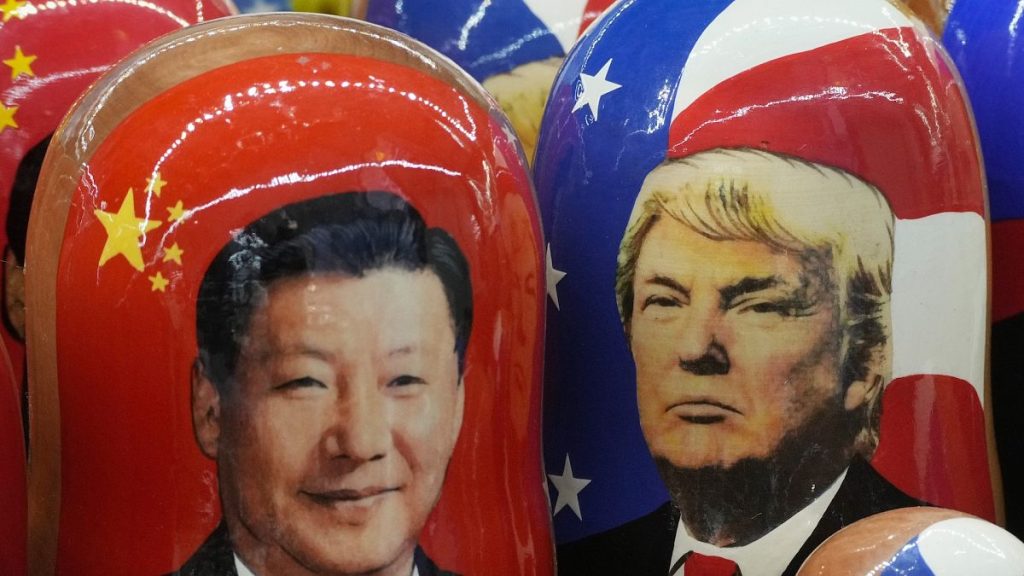The escalating trade war between the United States and several of its key trading partners, including Canada, Mexico, and most prominently, China, has become increasingly intertwined with the complex issue of fentanyl production and trafficking. While ostensibly focused on trade imbalances and illegal immigration, President Trump’s aggressive tariff strategy has targeted China for its alleged role in the fentanyl crisis, adding a significant new layer of tension to the already strained relationship. The US accuses China of failing to adequately control the production and export of precursor chemicals used in the manufacture of fentanyl, a potent synthetic opioid contributing to a devastating overdose epidemic in the United States. China vehemently denies these accusations, arguing that the US should address its own internal demand for the drug and criticizing the tariffs as a violation of international trade regulations.
The core of the dispute centers on the US assertion that China is a major source of fentanyl precursors, which are then shipped to countries like Mexico where they are synthesized into fentanyl and subsequently smuggled into the United States. The US administration points to the staggering number of overdose deaths attributed to fentanyl annually as evidence of the severity of the crisis and the need for China to take more decisive action. China, however, contends that it has implemented strict controls on the production and export of these chemicals, emphasizing its commitment to combating drug trafficking. Furthermore, China accuses the US of deflecting responsibility for its own internal drug problem and using the fentanyl issue as a pretext for escalating trade tensions. The divergent narratives and lack of transparency surrounding the flow of fentanyl precursors make it challenging to definitively assess the extent of China’s culpability.
China’s response to the US tariffs has been swift and assertive. The Chinese government has issued strong condemnations of the US actions, characterizing them as unwarranted and counterproductive. China maintains that it has been actively cooperating with the US and other international partners in efforts to combat drug trafficking, including sharing information and collaborating on enforcement operations. It argues that imposing tariffs will undermine these efforts and further exacerbate tensions between the two countries. China has threatened retaliatory measures, although specific actions have not yet been announced. This tit-for-tat approach raises concerns about a potential escalation of the trade war, with potentially damaging consequences for both economies and the global trading system.
Beyond the fentanyl issue, the trade war between the US and China is driven by a complex interplay of economic and geopolitical factors. President Trump has long criticized China’s large trade surplus with the US, accusing China of unfair trade practices and intellectual property theft. The tariffs imposed on Chinese goods are intended to pressure China to address these concerns and level the playing field for American businesses. However, critics argue that the tariffs are ultimately harmful to both economies, increasing prices for consumers and disrupting supply chains. China’s economic growth has slowed in recent years, and the trade war adds further uncertainty to its economic outlook.
The dispute also reflects a broader struggle for global influence between the US and China. As China’s economic and military power has grown, it has become increasingly assertive on the world stage, challenging US dominance in areas such as trade, technology, and geopolitics. The trade war can be seen as a manifestation of this broader competition, with both countries vying for economic and strategic advantage. The issue of illegal immigration, although less central to the US-China trade dispute than with Mexico and Canada, further complicates the picture. President Trump’s hardline stance on immigration has influenced his trade policies, as he seeks to pressure other countries to cooperate in stemming the flow of migrants to the United States.
The escalating trade war between the US and China, fueled by the fentanyl crisis and underlying economic and geopolitical tensions, presents a significant challenge to the global economy and international relations. The imposition of tit-for-tat tariffs risks a further escalation of the conflict, with potentially devastating consequences for both countries and the broader global trading system. Finding a resolution to this complex dispute requires a multifaceted approach that addresses the underlying economic and geopolitical concerns while also fostering cooperation on critical issues such as drug trafficking and public health. The international community has a vested interest in promoting dialogue and de-escalation to prevent the trade war from spiraling out of control and undermining global stability.














